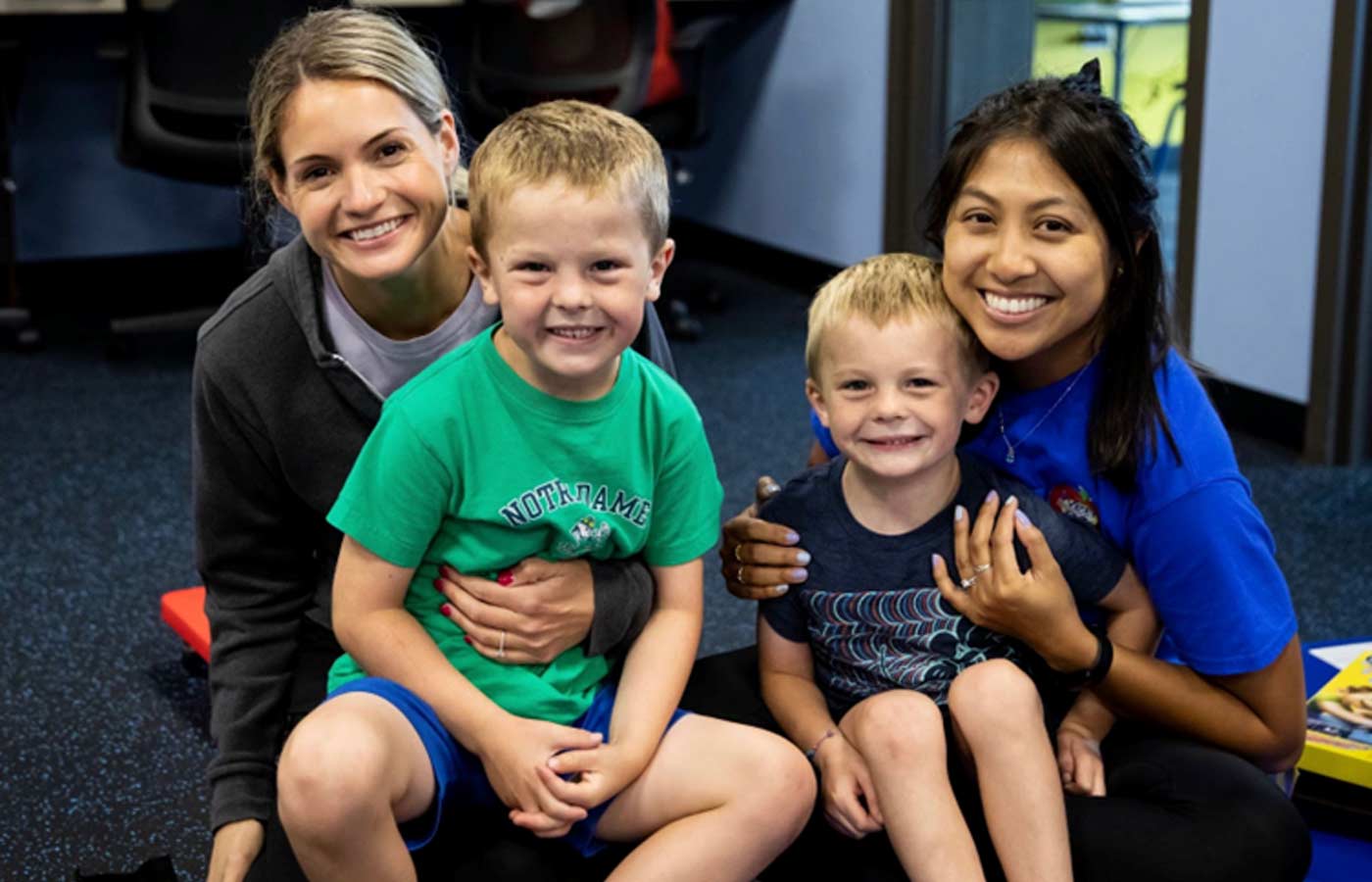A group of Westside Children’s Therapy Pediatric Occupational Therapists was asked what is essential to know in being an OT.
The tips come straight from current Westside therapists who have built careers in the field.
Outside of the nitty-gritty part of actually treating a child, what do you have to know/do to be a successful Occupational Therapist?
1 – Really get to know the child you’re treating in Occupational Therapy!
It sounds like it could be easy, but quite a bit can go into this! It is important to use the parent/guardian in order to get to know the child, as well as observe the child, to best learn about them and let that speak for itself. Don’t be afraid to take the first few sessions to build that rapport.
Ask questions and gain insight into what the child is like in other settings, such as school, parks, daycare, home, etc. Hearing about their daily routine and tasks as well as being a good listener/observer is very helpful!
Ask them what their interests are and use that wording and visuals as much as possible.
The phrase “using your therapeutic use of self” truly goes a long way in pediatric Occupational Therapy! The ability to connect with a client and their family makes all the difference. Your mind will often think of all the things you need to work on with a child, but in order to get there, building trust and a strong connection builds the foundation in order to be successful and to build a team.
2 – Challenge your ability to adapt to meet the child’s best interest.
Every child has different strengths and areas of growth that allow you to personalize treatment, and allow them to meet their goals.
So often, you have to adapt your plan to not only achieve goals but to keep the child engaged. You have to be willing to work with the child and meet them where they are at. Some days, the child will come into Occupational Therapy and get a lot done and they tolerate everything well. Some days, they’ll come in tired, hungry, stressed, and get upset over any inconvenience or when they are unable to do something. In those times, it is more important to build and solidify a relationship and trust than it is to just achieve your goals. Oftentimes, they’ll be able to push through more and process better if they know they can come to you and trust you.
3 – There’s always more to learn
Keep your ears and mind open for learning opportunities. You have to get comfortable with being uncomfortable.
You can also take time to learn from your child’s therapists outside of Occupational Therapy. Know what’s going on in their Physical Therapy, Speech Therapy, or Feeding Therapy sessions.
4 – Keep therapy fun! For both you and the child!
Kids learn through exploring their environment in fun ways and building skills (that may be really hard for them) by engaging in fun and motivating activities. You’d be surprised how many observations you can get just by sitting and playing a game with the child.
There are times when the job can be stressful and seem overwhelming, but it is important to remember to not take yourself seriously and slow down and have fun. If you’re not having fun, the kid for sure is not having fun!
5 – You have to be patient
You have to know that sometimes this awesome plan you had in your head is unfortunately not the best plan for the child.
You have to adapt and then be patient in order to see the therapeutic benefits and that is OK. The best part is spending time with the child and then their families, and being able to come out of a session and share with the family what their child accomplished and how it is helping meet your goals.
6 – Be prepared for documentation
Thorough documentation is necessary for pediatric therapy.
As sessions go on, you will need to keep a record of what you’re doing and what is working well, what the child loves, or what is challenging, to meet their goals. For example, after a session, a treatment note helps record what goals have been achieved and which are still being worked toward.
Progress notes are taken every few months and are important to tell doctors, or report to insurance companies that OT is still working and medically necessary. It sometimes will feel tedious but is an important part of making sure that the child meets all their goals. Therapy is supposed to be fun, but that doesn’t matter if therapeutic goals are not being reached.
7 – Occupational Therapists can become Certified Feeding Therapists
Feeding Therapy is one of the disciplines that Westside provides families. It is often done by Speech Therapists and Occupational Therapists.
This not only allows more children to receive services but can also impact you positively in regular Occupational Therapy sessions!
Closing Thoughts
It is also important to note that while the career may have its challenges and so much can go into it, it is also incredibly rewarding and allows for personal and professional growth!
Here are a few direct quotes from Westside therapists on what makes the job as a pediatric Occupational Therapist so rewarding.
“My most favorite part of the job is seeing my kiddos reach key milestones in their lives and achieve independence in tasks that are meaningful to them.”
“My favorite part of the job is getting a text or email from a parent to tell me that the kiddo is doing something they haven’t been able to before.”
“My favorite part of being an OT is the ability to create personal connections with kids and their families and to set the foundation for a child’s growth and development. I love finding creative ways to challenge a child and build their skills in a way that makes the most sense for them! Every child is going to need different approaches and levels of assistance, and I love being able to find the just-right-challenge so that the child can succeed!”
“Nothing is more rewarding than helping a kiddo meet their goals or to see tasks that used to be hard for them now become easier!”
To learn more about Occupational Therapist jobs at Westside, click below!







